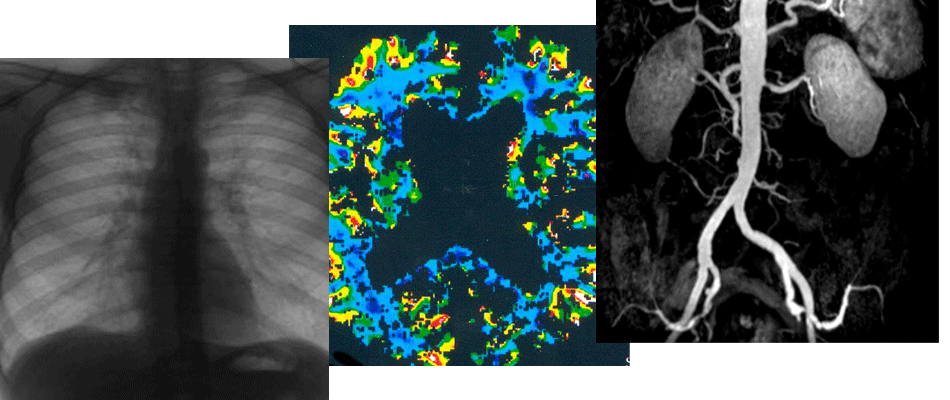Abstract: Background: There are no randomized trials describing outcomes of multivessel percutaneous coronary interventions (PCI) (in primary anc staged revascularization) with second generation drug eluting stents (DES) in patients with ST-elevation myocardial infarction (STEMI). We are presenting preliminary results of randomized trial (NCT01781715) Materials and methods: Six-month outcomes of 89 consecutive patients with STEMI and multivessel coronary artery disease (CAD) (SYNTAX 18.6±7.9 points) undergoing primary PCI with zotarolimus-eluting stents (Resolute Integrity; Medtronic) were studied. We used two strategies of multivessel stenting: in primary PCI (MS primary) and multivessel stenting in staged revascularisation (MS staged) (8.5±4.2 days). Results: We evaluated results in the overall cohort of patients, including two study groups (MS primary and MS staged). During follow-up of 6 months there was no cardiac death in overall group. We observed 3 (3.4%) non-fatal myocardial infarction (MI) due to definite stent thromboses (ST) (1.3% on the number of stents). Target vessel revascularization (TVR) was performed in 2 cases (2.2%). Major adverse cardiac event (MACE) (cardiac death, MI, TVR) was diagnosed in 4.5%. Conclusions: Resolute Integrity stents in STEMI patients with multivessel CAD are satisfactory safely and effectively as part of the strategy of multivessel stenting in primary PCI and multivessel staged PCI (8.5±4.2 days). References 1. Sorjja P., Gersh B.J., Cox D.A. Impact of multivessel disease on reperfusion success and clinical outcomes in patients undergoing primary percutaneous coronary intervention for acute myocardial infarction. Eur. Heart J. 2007; 28:1709-16. 2. Jang H.L., Hun S.P., Shung Ch.Ch. Wee Hyun Park and Korea Acute Myocardial Infarction Registry Investigators. Predictors of six-month major adverse cardiac events in 30-day survivors after acute myocardial infarction (from the Korea Acute Myocardial Infarction Registry). Am. J. Cardiol. 2009;104:182-89. 3. Rasoul S., Ottervanger J.P., de Boer M.J. Predictors of 30- day and 1-year mortality after primary percutaneous coronary intervention for ST-elevation myocardial infarction. Coron. Artery Dis. 2009; 20: 415-21. 4. Webb J.G. Lowe A.M., Sanborn T.A. et al. Percutaneous coronary intervention for cardiogenic shock in the SHOCK trial. J.Am. Coll. Cardiol. 2003;42:138-86. 5. Smith S.C., Jr., Feldman T.E., Hirshfeld J.W. Jr. et al. ACC/AHA/SCAI 2005 Guideline Update for Percutaneous Coronary Interventiondsummary article: a report of the 6. Ijsselmuiden A.J., Ezechiels J., Westendorp I.C., et al. Complete versus culprit vessel percutaneous coronary intervention in multivessel disease: a randomized comparison. Am.Heart.J. 2004;148:467-74. 7. Politi L., Sgura F., Rossi R., et al. A randomised trial of target-vessel versus multi-vessel revascularisation in ST-elevation myocardial infarction: major adverse cardiac events during long-term follow-up. Heart. 2010; 96:662-67. 8. Fox K., Garcia M.A., Ardissino D. Guidelines on the management of stable angina pectoris: executive summary. The Task Force on the Management of Stable Angina Pectoris of the European Society of Cardiology. Eur. Heart J. 2006;27:1341-81. 9. Gabriel S., Stefan K., James D.A. The Task Force on the management of ST-segment elevation acute myocardial infarction of the European Society of Cardiology (ESC). European Heart Journal. 2012. doi:10.1093/eurheartj/ehs215. 10. Roe M.T., Cura F.A., Joski PS. Initial experience with multivessel percutaneous coronary intervention during mechanical reperfusion for acute myocardial infarction. Am. J. Cardiol. 2001; 88:170-173. 11. Corpus R.A., House J.A., Marso S.P et al. Multivessel percutaneous coronary intervention in patients with multivessel disease and acute myocardial infarction. Am. Heart. J. 2004; 148:493-500. 12. Widimsky P., Holmes Jr. David R. How to treat patients with ST-elevation acute myocardial infarction and multivessel disease? European Heart Journal Advance Access published November 30, 2010. European Heart Journal doi:10.1093/eurheartj/ehq410. 13. Politi L., Sgura F., Rossi R. et al. A randomised trial of target-vessel versus multi-vessel revascularization in ST-elevation myocardial infarction: major adverse cardiac events during long-term follow-up. Heart.2010;96:662-667. 14. Varani E., Balducelli M., Aquilina M. et al. Single or multivessel percutaneous coronary intervention in ST-elevation myocardial infarction patients. Catheter Cardiovasc. Interv. 2008;72:927-933. 15. Roe M.T., Cura F.A., Joski PS. Initial experience with multivessel percutaneous coronary intervention during mechanical reperfusion for acute myocardial infarction. Am. J.Cardiol. 2001;88:170-173. 16. Hannan E.L., Samadashvili Z., Walford G. Culprit vessel percutaneous coronary intervention versus multivessel and staged percutaneous coronary intervention for ST- segment elevation myocardial infarction patients with multivessel disease. JACC Cardiovasc. Interv. 2010; 3:22-31. 17. Goldstein J.A., Demetriou D., Grines C.L. Multiple complex coronary plaques in patients with acute myocardial infarction. N. Engl. J. Med. 2000;343:915-22. 18. Тарасов Р. С., Ганюков В. И., Шушпанников П. А. Исходы различных стратегий реваскуляризации у больных инфарктом миокарда с элевацией сегмента ST при многососудистом поражении в зависимости от тяжести поражения коронарного русла по шкале «- SYNTAX». Российский кардиологический журнал. 2013; 100(2):31-32.

Website is intended for physicians








